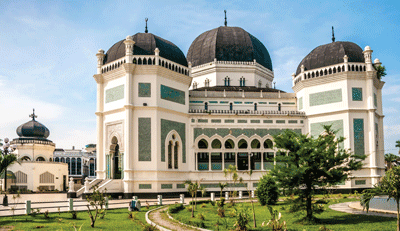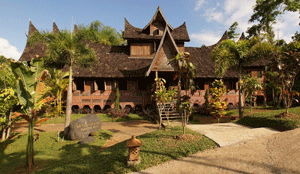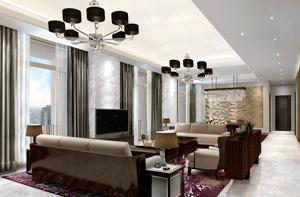
Indonesia’s new policy for fewer government meetings to be held at hotels is hurting the sector deeply. Mimi Hudoyo analyses the impact
The domestic corporate and meeting market is the mainstay of majority of hotels in Indonesia, except those in Bali and Jakarta, so it is little wonder that the country’s hotel industry was in shock last November over the Ministry of State Apparatus and Bureaucratic Reform’s circular restricting government officials from organising meetings outside their office premises. The budget for official travel was also cut significantly, as part of the new Joko Widodo administration’s attempt to ‘ration’ the state budget.
Since regional autonomy started in Indonesia over a decade ago, regional businesses had grown, prompting investors to inject funds into hotel development with meeting facilities. Many of these facilities had been the venues for government and state-owned companies’ meetings and training programmes.
Government meetings formed 40 to 50 per cent of the MICE market of the Indonesia Hotels and Restaurants Association (IHRA) members, according to the association. Following the imposition of the new policy, hotels in Bandung, Jogjakarta and Lombok reported massive cancellations last November and December, typically the busiest government meeting months. Some hotels in Bali and Jakarta also reported cancellations.
Erny Kusmastuti, general manager of Eastparc Hotel Jogjakarta, said: “A recent Jogjakarta tourism stakeholders’ meeting revealed that last November and December the city lost 70 billion rupiah (US$5.6 million) worth of (government) meetings.”

She added the policy is also affecting state-owned financial institutions and telecommunication companies, which organise many conferences, seminars and training programmes.
“Even state-owned Gadjah Mada University is acting cautious, holding back bookings for this year,” she revealed.
Hera Adiwikarta, vice president sales and marketing, Aerowisata Hotels & Resorts, said: “Our resort hotels in Bali and Lombok are not affected, but the city hotels in Bandung and Jakarta are, as the government segment is quite significant for them.”
Similarly, Vivi Herlambang, director of sales, marketing and business development, Sahid International Hotel Management & Consultant, said: “Government meetings comprised about 30 per cent of our group business, so the impact is quite significant.” The group has hotels in Jakarta, Manado and Solo, among others.
Yanti Sukamdani, chairman, IHRA, warned: “Some of our members have started reducing their staff strength and if we do not do something soon, I’m afraid the hotels will collapse. We all know hotels have been mushrooming everywhere in the last few years, and many are relying on MICE.”
IHRA is lobbying the government to review the policy and come up with the criteria for meetings to be restricted to government premises. “We agree that the government should reduce the number of meetings, but this should not be applied across the board,” she said.
Eastparc’s Erny said: “(Hoteliers) are still fighting for the policy to be revoked, but (meanwhile) we have staff and family to feed, so we have to change our strategy.”
The hotel is now turning to the corporate and leisure markets from Singapore and Malaysia, which in the last couple of years have sent a growing number of travellers due to improved accessibility from both countries.
“We are now trying to attract corporate meetings from both countries,” she shared.
Sahid’s Vivi said the company is also wooing corporates and TMCs while at the same time improving the facilities and services of its hotels. “We realise that apart from pricing, companies also take into consideration product and service quality. We are in the midst of upgrading some of our properties.”
Additionally, the company is developing its e-commerce platform to reach out to broader market segments overseas, she revealed, adding: “We will participate in international tradeshows, such as PATA Travel Mart and ITB Asia, something which the company has not done for many years.” She hopes this will reintroduce Sahid brands to the international market, before specifically tapping MICE from overseas.
Aerowisata’s Hera said the group is in the middle of upgrading and rebranding its properties, and it too has chosen to expand to other geographic markets and segments, including corporate travel, meetings and leisure.
Some players in the Indonesian MICE industry view the new policy as a wake-up call for players to diversify and create new markets.
Christina Rudatin, advisor at the MICE Centre, an Indonesian MICE research and development body, said: “I hope that not only the hotels but the whole industry will go out of their comfort zone and promote not only their properties and businesses but the destination as well. The industry has been relying on the huge domestic market and very few go out to bid for international events.”
She has also gathered information from the Indonesian police, which issues permits for events, that shows the presence of a huge number of corporate events in Indonesia. Events requiring police permits are usually large, with at least a few hundred participants.
“There is still opportunity for hotels to grab this market, but they probably need to upgrade their facilities and services to win it,” she said.
The new policy has also afforded Jakarta Convention and Exhibition Bureau the chance to bring in more overseas corporate meetings, according to its executive director, Indra Sukirno.
Rizki Handayani, director of MICE and special interest tourism promotion, Ministry of Tourism, said: “We are encouraging destinations to develop an international network and introduce themselves overseas. We already have 16 (destinations) to focus on, but not all of them are ready to host international events yet.
“Places like Medan and Surabaya should start marketing themselves internationally as accessibility and MICE facilities are already available – one way is for them to participate in overseas MICE tradeshows with us. Bandung and Jogjakarta however, should go regional.”
Ideas
One-day treasure hunt at the old city
Morning
Participants gather at Bank Mandiri Museum, one of the many heritage cum museum buildings in Kota Tua (old city), Jakarta. They get a briefing on the game and are divided into four groups. They then get their first clue card, telling them to find specific items in the museum, take photographs of them and show these photographs to the Dutch Master.
The Dutch Master gives out the second clue card, which indicates that the next item to find is located in another museum. The groups need to do an Internet search to know that the next location is the Puppet Museum, which is a five-minute walk away.
Afternoon
At the Puppet Museum, another clue card is given. Groups need to take the bike to go to the next stop, Toko Merah, the former house of Batavia governor general Gustaaf Willem Baron van Inhoff built in 1730. On the way, they must photograph the surroundings and upload them on social media. Lunch is served.
After lunch and, bringing a small box of tea from Toko Merah, groups mount the bike again to the Fine Art & Ceramic Museum, about 10 minutes’ ride away. They need to find the Dutch Master’s quarter there to hand over the tea box and get the final task, which requires them to have their members’ photograph taken in front of the Jakarta History Museum.
Evening
The game ends with refreshment at Café Batavia, the décor and atmosphere of which are reminiscent of the Dutch colonial period.
– Itinerary by Museum Ceria, a museum community of the University of Indonesia
Need to Know
D for delicious

Jakarta saw the entry of a new restaurant, Letter D Cuisine and Bar, in January. Located in the Gandaria area, south Jakarta, it serves authentic Indonesian, European and Asian cuisines.
Owned by Indonesia’s celebrity chef and recent judge of the Master Chef Indonesia competition, Degan Saptoadji, Letter D’s menu has been meticulously crafted to reflect the owner’s varied experience working in various hotels and restaurants in Indonesia and overseas. Find the recreated ayam bakar (grilled chicken) of his childhood, the bold flavours of European favourite osso buco and the charm of Thailand’s communal som tum salad.
The two-storey restaurant seats 150 pax comfortably and features an outdoor seating area for 30 guests. It is divided into four sections; private group gatherings may occupy one whole floor (combining the two sections on each floor) or take up a smaller section for 25-40 people.
Party in a bus
A new luxury party bus, the Royale VIP Bus, has been launched in Jakarta for private charter, offering a new way for groups to enjoy Jakarta’s nightlife amid the city’s traffic.
The custom-made bus seats up to 20 people. It is fitted with a surround sound system, disco lights and a karaoke system. There is also a bar fridge and a toilet.
The service includes a chauffeur, an assistant and a butler, with supplies including the bus fuel, ice cubes, plastic cups and mineral water. Prices start from three million rupiah (US$238) per bus. Additional charges apply if including travel to Jakarta’s neighbouring areas.
Have a history lesson at the cultural park

Taman Nusa in Gianyar Bali is a 15ha cultural park housing museums and a village showcasing over 60 traditional houses from around Indonesia, some of which are hundreds of years old.
Visitors will be taken through the history of Indonesia, from as far back as pre-historic times. They will also obtain comprehensive information on the culture and customs of various ethnic groups in Indonesia in an interactive way.
The restaurant, cafeteria, theatre and lush gardens can be used for events.
New upper-upscale hotels for Jakarta
Jakarta welcomes 2015 with at least two new luxury properties.
Fairmont Jakarta opened its doors in January with 380 rooms and suites in the Senayan area, close to the Indonesia Stock Exchange and Jakarta Convention Center. It is directly linked to Plaza Senayan shopping mall and office towers.
The hotel has five F&B outlets and 3,500m2 meeting and function space, including a 1,200m2 ballroom and eight meeting rooms.
Sister property, Raffles Jakarta, opened in February with 173 rooms and suites. The hotel features three restaurants and three bars, while its meeting facilities include a ballroom with a capacity for up to 3,500 people, three breakout rooms and one boardroom.

Fairmont Jakarta
Say hello to Kitty
Ancol Dream Land, Jakarta has recently added a new attraction, the Hello Kitty Time Travel, the first Hello Kitty attraction in Indonesia.
Covering an area of 1,150 m2 with a total capacity of 1,000 visitors per hour, the Hello Kitty Adventure offers 14 interactive games such as Mechanical Toggle, Wheel Bubble Up and Hole View. The Magic Apple time capsule takes visitors ‘around the world’, including Jakarta and Bali in Indonesia, Japan, the US, the UK, Egypt, the North Pole and Greece.
Earlier last year the Jakarta theme park added Ice Age Arctic Adventure in co-operation with the Ice Age filmmaker, 20th Century Fox. Sid’s Arctic Tour, an eight-minute dark ride, takes visitors through the jungle, mountain and the melting iceberg depicted in the four films.





















